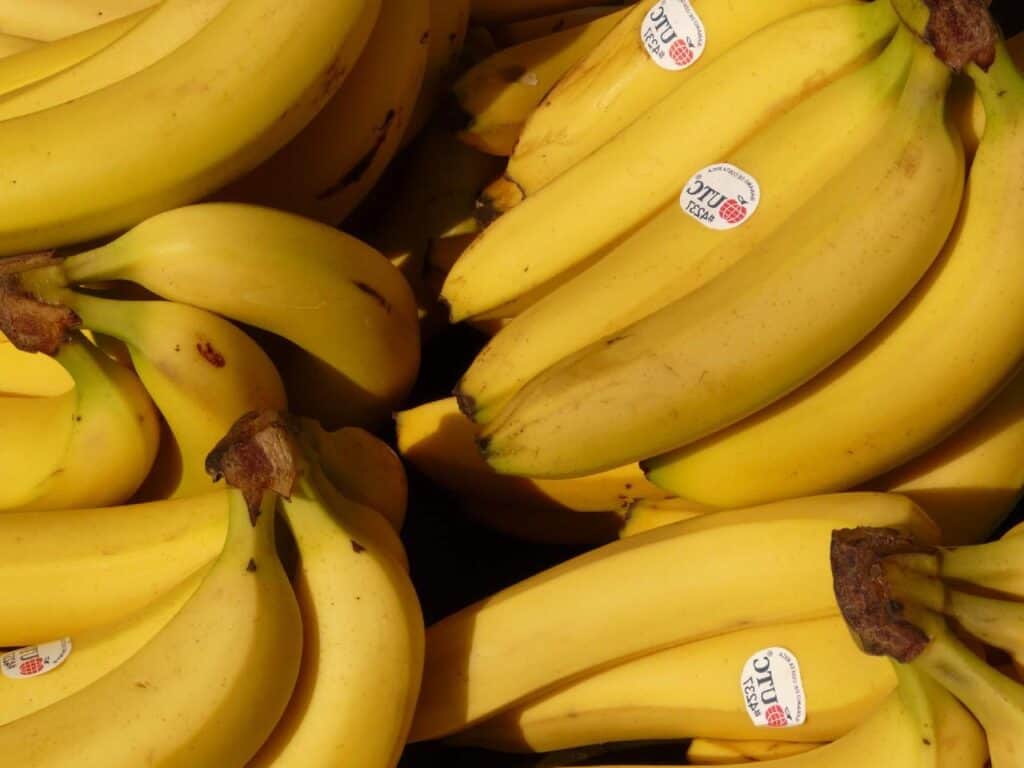Potassium is not something that we encounter a lot in everyday life. That’s probably because it’s highly reactive and it takes a bit of work to extract the pure element and it can’t be left out in the air or it won’t be pure for much longer. But does the fact that potassium is very reactive make it flammable and if so, is it a risk to be around?
Potassium is a highly reactive element that can catch fire fairly easily. It can react especially seriously when mixed with water.
For this reason, it is important to understand how potassium can behave and the safety concerns it carries. Here’s what you need to know.
Your # 1 priority is keeping your family safe. As a firefighter, I recommend everyone has updated smoke detectors that don’t require battery changes, like these ones from Kidde, a fire extinguisher, like this one from Amerex, and a fire escape ladder if you have bedrooms above the first floor, I recommend this one from Hausse.
Also read: What Makes Something Flammable?
What Is Potassium?

Potassium is an alkali metal that shares the same period of the periodic table as lithium, sodium, and cesium.
It is a very soft metal, and you can cut it using nothing more than a knife and very slight pressure.
It is also highly reactive and that means it’s never found in its pure form in nature, but always as part of a compound (and usually a highly ionic compound, at that).
It takes almost no time at all for potassium to react with oxygen in the air, for example, and form potassium peroxide (a white solid).
This means that in order to store potassium it must be kept in mineral oil or in a vacuum or isolated atmosphere, otherwise, you soon have no potassium and a large lump of potassium salts instead.
Potassium is essential to human life and, in fact, all living cells and it allows for the conduction of nerve impulses through the cell wall.
The good news is that it’s hard to be potassium deficient in your diet and fresh fruit and vegetables are an excellent source of potassium.
In industry, potassium is prized for its solubility in compound form, and it’s very commonly used in potassium soaps.
It’s also useful in agriculture to replenish the potassium leached from the soil by intensive farming methods.
Also read: Is Magnesium Flammable? Extreme Metal Fires
Is Potassium Flammable? Does It Catch Fire?
If pure potassium is stored correctly, it will not spontaneously combust, however, if it is not stored properly and it is exposed to moisture (including that in the air) then things are very different.
Potassium reacts, as do the other alkaline metals, violently with water.
The resulting reaction produces potassium hydroxide and pure hydrogen.
Because of the heat and light given off during this reaction, the hydrogen produced is immediately ignited, this gives potassium in water the appearance of burning.
This is also why, it doesn’t matter if potassium is technically flammable, when exposed to air, it can (and will) ignite spontaneously at low temperatures thanks to the humidity of the air.
Potassium is, technically, combustible rather than flammable, but it can catch fire easily.
But as we’ve already noted, this isn’t something that matters very much when it comes to most uses of pure potassium because potassium will react with the moisture in the air around it and catch fire at room temperature.
Also read: Is Sodium Flammable?
Does Potassium React With Heat/Water?
Heat, by itself, is not enough to react with any element, though it can force a change of state (melting, boiling, etc.) without oxygen or another reactive substance, that’s all it can do and potassium is no exception.
The reaction between potassium and water is fairly simple.
The potassium forms potassium hydroxide and hydrogen gas is produced.
This reaction is exceedingly violent and the hydrogen is burned off immediately in the air to form more water.
Take a look at this reaction in this video:
Also read: Is Calcium Flammable?
Can It Explode?
One of the most commonly used compounds of potassium is potassium permanganate.
It will not explode in the air or even in water.
However, it is apparently a very common additive for homemade explosives and it will explode when ground with the element phosphorous and it can also be mixed with ammonium nitrate (a form of fertilizer) to be used as an explosive.
Please note, these reactions are extremely dangerous, and you should not experiment with them at home, you would almost certainly hurt or even kill yourself.
You can see more of these reactions here:
How Much Potassium Permanganate Is Lethal?
Another good reason not to play with potassium permanganate is that it is a very corrosive substance and potentially deadly.
As little as 10g of potassium permanganate powder can kill a human being.
How Would You Neutralize Potassium Permanganate?
If potassium permanganate is spilled, it shouldn’t be cleaned up without being neutralized first, the best way to do this is to use a 3% solution of hydrogen peroxide.
It is important to recognize that hydrogen peroxide is a bleaching agent and highly corrosive too and if you need to carry out a clean-up like this, you must make certain that you’ve read the material data safety sheet that comes with it.
Can Potassium Be Stored In Air?
Storing potassium in the air, if the air is dry, will cause the potassium to swiftly oxidize and create potassium oxide.
Storing it in humid air will lead to a violent reaction between potassium and water.
Therefore, assuming you want to keep your potassium sample pure, it’s not possible to store it while exposed to the air.
Is Potassium Poisonous?
Potassium, itself, is not poisonous in small quantities.
However, given its high level of reactivity, it would be a very bad idea to try and ingest pure potassium as it would lead to burns and even fatal injury.
However, most of us ingest potassium in some quantity during the course of every day in compound form and compounds like potassium chloride are perfectly safe in sensible quantities.
In fact, potassium chloride rather like sodium chloride (table salt) is a commonly used electrolyte and can be found in sports drinks and rehydration therapy, alike.
This doesn’t mean that all potassium salts are safe to consume.
We’ve already seen that potassium permanganate can be deadly and the same is also true of potassium cyanide (another fairly common chemical).
In tiny doses, potassium cyanide can be processed by the body, but if you exceed that tiny dose?
You’ll end up with cyanide poisoning which is fatal and very painful too.
Why Is It Dangerous?
Potassium is dangerous due to its incredible reactivity,
It should always be treated with caution and respect.
You should never handle it with your bare hands as it will react with the moisture on your skin.
For similar reasons, you should never put it in your eyes or try and eat it.
Because potassium reacts with water, if it does come into contact with you, you should not attempt to wash it off with water.
What Would Happen To Me If Potassium Disappeared?
If there was no available potassium, we would all die.
Your blood pressure would soar, the levels of calcium in your bones would drop, you would develop kidney stones, you’d vomit, you’d have diarrhea, then you’d develop difficulty breathing, your heartbeat would become irregular and your muscles would be paralyzed and then, you would die.
Potassium is very important for people.
What Are The Symptoms of High Potassium?
It is also possible to have too much potassium in your diet and oddly, the symptoms of potassium poisoning (hyperkalemia) are very similar to those of too little (hypokalemia).
If you suspect you are suffering from either – it’s a good idea to visit a health professional and get your potassium levels checked, they will then be able to help you make adjustments to your diet or, in rare cases, offer supplements to get your potassium levels back in a healthy range.
Can You Check Your Potassium Level At Home?
There is a British company that produces cheap potassium tests for home use, but we would recommend speaking to a medical professional before you begin testing your potassium, as making mistakes with the amount you need can make you very unwell.
Sources
1, 2, 3, 4, 5, 6, 7, 8, 9, 10, 11, 12, 13
Related Articles
Is Lead Flammable? Will it Burn?

